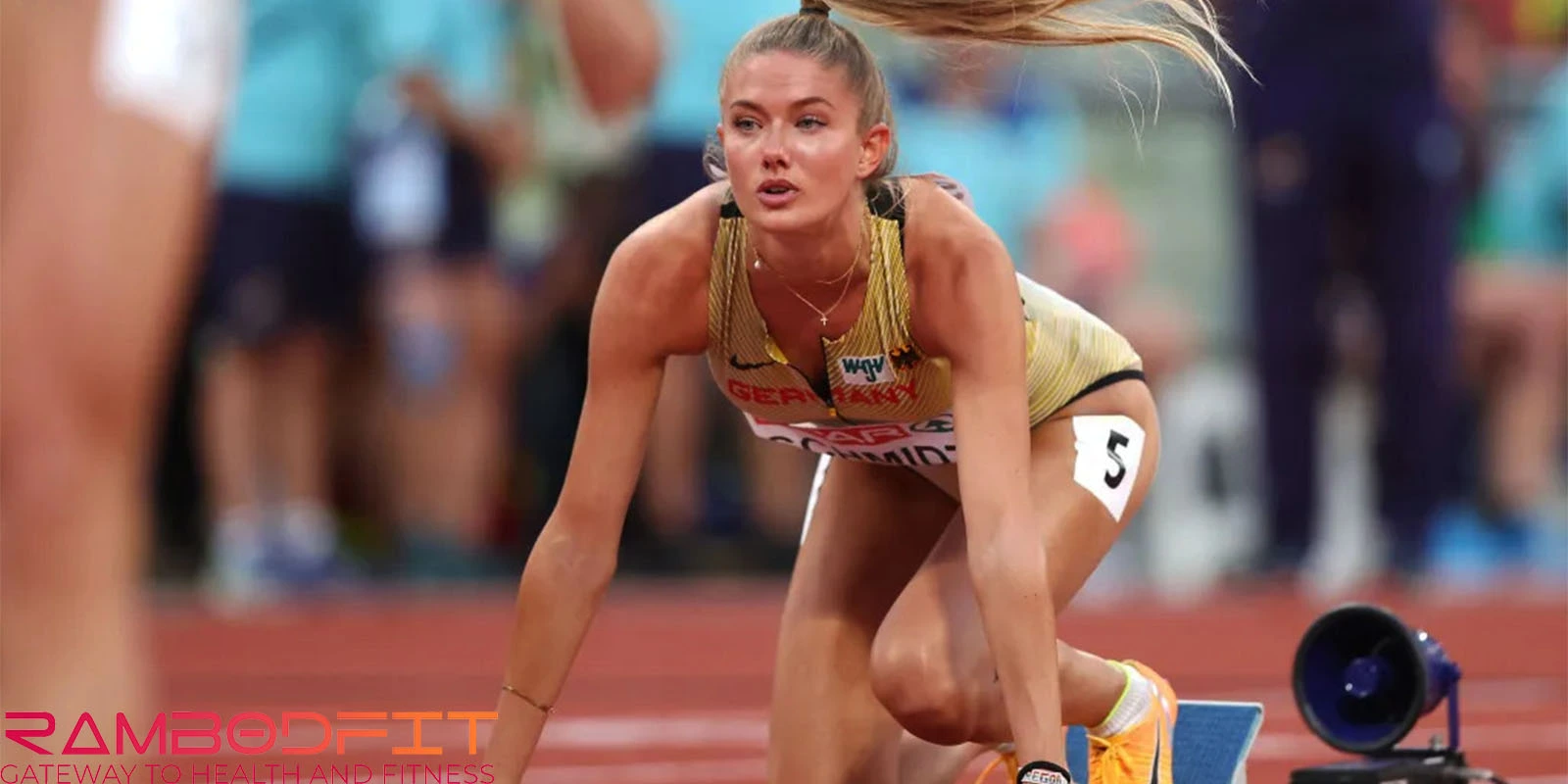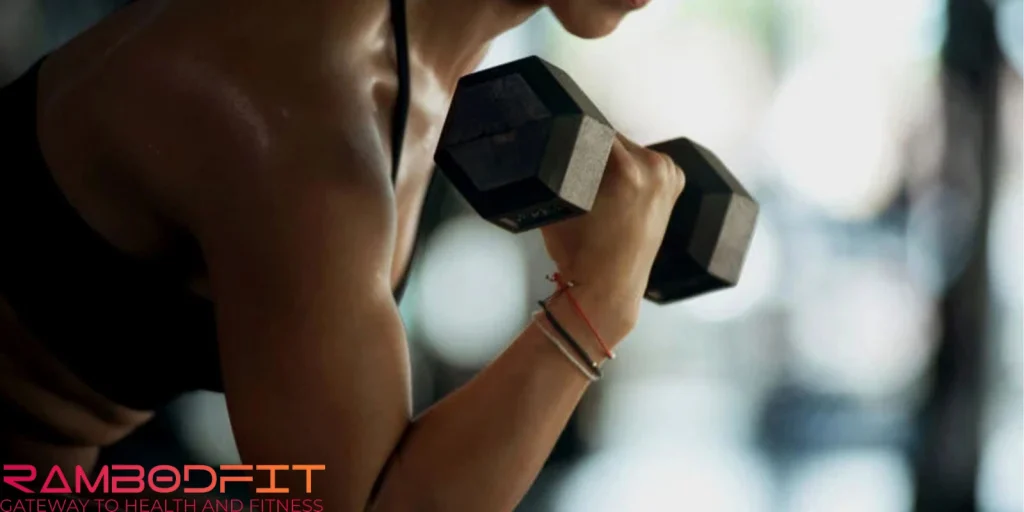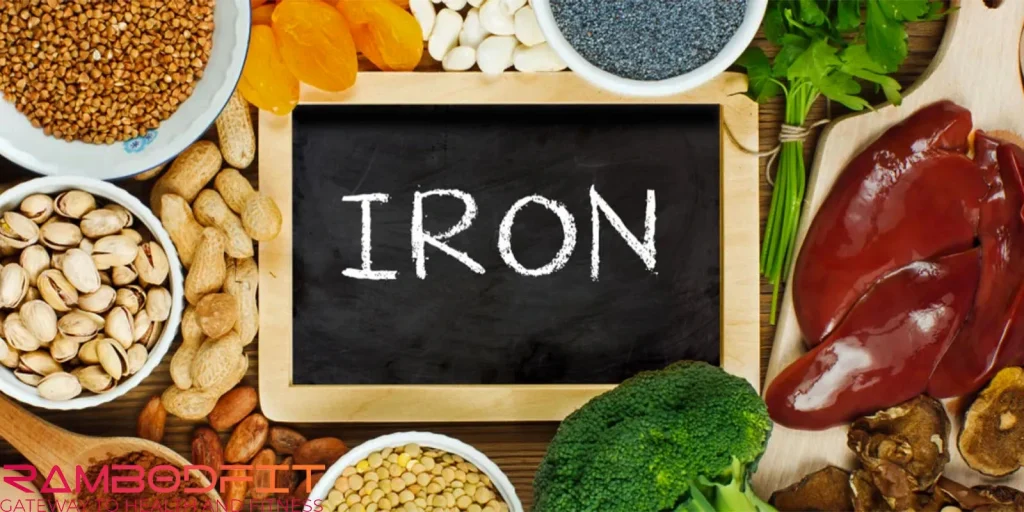


Iron is an essential mineral for athletes, especially female athletes because it supports oxygen transport through blood cells, energy production, and muscle recovery, which are important to athletic performance and endurance. Lucky for you we are going to talk about iron-rich foods for female athletes in this article on RambodFit.
Female athletes are at a higher risk of iron deficiency due to menstrual blood loss, increased iron demands from vigorous physical activities, and sometimes limited iron intake, particularly in vegetarians. Understanding the function of iron and how to meet daily iron-rich foods for female athletes can help them improve performance, maintain health, and prevent fatigue and injury.
Table of Contents

Iron-rich foods for female athletes are crucial because iron is an essential component of hemoglobin, the protein in red blood cells that carries oxygen from the lungs to the muscles. It also supports myoglobin, a muscle protein that stores oxygen for use during vigorous activities.
Insufficient iron levels can limit oxygen delivery to muscles, reducing aerobic capacity, endurance, and recovery ability, which are all critical for athletes.
Studies show that iron deficiency can reduce function, especially in endurance sports, where oxygen transport efficiency is necessary.
Not consuming sufficient iron-rich foods for female athletes can cause iron deficiency. being aware of iron deficiency symptoms is essential to maintaining performance and health.
Common symptoms include:
If these symptoms occur, consulting a healthcare professional for a blood test is important, as untreated iron deficiency can lead to iron deficiency anemia, a condition that can significantly impact athletic performance and overall health.
Iron deficiency anemia (IDA)
Iron deficiency is common among female athletes, affecting up to 30% in some sports, especially in those with high endurance demands. However, even non-anemic iron deficiency, where hemoglobin levels are normal but ferritin (iron storage) is low, can affect performance.
Symptoms of low iron can include fatigue, weakness, shortness of breath, reduced endurance, and poor concentration, which can be particularly challenging for athletes who depend on peak physical and mental functioning.
Recommended Iron Intake for Female Athletes
The Recommended Daily Allowance (RDA) for iron in women aged 19-50 is 18 mg per day, but athletes, especially those engaged in heavy endurance training, may require higher intakes due to increased losses through sweat, urine, and menstruation.
Endurance athletes and vegetarians may require up to 1.3-1.7 times the RDA for iron to maintain optimal levels.
Monitoring Iron Levels
Athletes, especially those with heavy training loads, may benefit from regular blood tests to monitor iron status, including ferritin and hemoglobin levels.
Ferritin is a marker of stored iron, and low ferritin levels can be an early sign of iron deficiency, even if hemoglobin levels are within the normal range. Regular monitoring allows athletes to identify and address deficiencies before they impact performance.

To support athletic performance and prevent deficiency, iron-rich foods for female athletes can be beneficial. Iron comes in two forms: heme iron, found in animal products, which is more easily absorbed, and non-heme iron, found in plant foods, which is less efficiently absorbed. Here are some of the best sources of iron:
1. Lean Meats (Beef, Lamb, Pork)
These are rich in heme iron. For instance, a 3-ounce serving of beef provides around 2.1 mg of iron. Heme iron has an absorption rate of around 15-35%, significantly higher than non-heme iron, making it a more efficient source.
2. Chicken, Turkey
Poultry, especially dark meat, is also a good source of heme iron. A 3-ounce serving of dark-meat turkey provides about 1.4 mg of iron. Although it contains less iron than red meat, it’s still beneficial and generally leaner.
3. Fish (Salmon, Tuna, Shellfish)
Seafoods like clams, mussels, and oysters are exceptionally high in heme iron. For instance, a 3-ounce serving of clams contains around 24 mg of iron. Fatty fish like salmon also offer the benefit of omega-3 fatty acids, which support heart health and reduce inflammation.
4. Fortified Cereals and Grains
Many cereals are fortified with iron, making them a good source, especially for vegetarians. One serving can provide as much as 18 mg of iron, meeting the daily requirements in one meal. Check the nutrition label to ensure it is fortified and monitor sugar levels.
5. Beans and Legumes (Lentils, Chickpeas, Black Beans)
Lentils provide about 3.3 mg of iron per cup and are versatile for various recipes. Beans and legumes are also high in protein and fiber, offering sustained energy for workouts and recovery.
6. Leafy Greens (Spinach, Kale, Swiss Chard)
Leafy greens like spinach are rich in iron, with 1 cup of cooked spinach providing around 6.4 mg of iron. Pairing these with a source of vitamin C, like citrus fruits or tomatoes, can increase absorption.
7. Nuts and Seeds (Pumpkin Seeds, Cashews, Sunflower Seeds)
Nuts and seeds are a good source of non-heme iron. For example, 1 ounce of pumpkin seeds contains about 2.3 mg of iron. They are also rich in healthy fats, which support sustained energy and cell health.
8. Dried Fruits (Apricots, Raisins, Prunes)
Dried fruits are convenient snacks that offer a quick boost of iron. A half-cup of dried apricots provides about 4.7 mg of iron. Be mindful of portion sizes, as dried fruits can be high in natural sugars.
Healthline provides numerous iron-rich foods for female athletes.
Iron Supplementation: When It’s Necessary
While food sources are the best way to obtain iron, supplementation may be necessary for some women athletes, particularly those with diagnosed iron deficiency.
Iron supplements should be taken under medical supervision, as excessive iron can lead to toxicity and has been associated with health risks.
If supplements are necessary, they are often taken in a form like ferrous sulfate, ferrous gluconate, or heme iron polypeptide, based on absorption rate and tolerance.
Balancing Iron Needs in Vegetarian and Vegan Athletes
Vegetarian and vegan athletes face unique challenges in meeting iron requirements, as they rely on non-heme iron sources, which are less readily absorbed.
Strategies to help boost iron intake and absorption include consuming a variety of plant-based sources and pairing them with vitamin C-rich foods.
Fortified and iron-rich foods for athlete women and iron supplements can also be useful tools to ensure adequate intake for vegetarian and vegan athletes.
Iron absorption can vary based on the type of iron consumed and other dietary factors. To maximize iron absorption, consider the following tips:
1. Pair Iron with Vitamin C
Vitamin C enhances non-heme iron absorption significantly. Pair iron-rich foods with vitamin C sources like bell peppers, citrus fruits, strawberries, and broccoli.
2. Avoid Calcium with Iron
Calcium competes with iron for absorption, so it’s best to consume dairy or calcium supplements separately from iron-rich meals.
3. Limit Tea and Coffee Around Meals
Compounds in tea and coffee called tannins can inhibit iron absorption. Drinking these beverages between meals rather than with meals can help maximize iron intake.
4. Cook in Cast Iron Pans
Cooking acidic foods (like tomatoes) in cast iron cookware can increase the iron content of meals slightly, as iron from the pan leaches into the food.
Iron-rich foods for female athletes are crucial, as they support energy, endurance, and recovery. By understanding their iron needs and incorporating a variety of iron-rich foods for female athletes, women athletes can optimize their performance and avoid the negative effects of iron deficiency.
Regular monitoring, dietary planning, and mindful pairing of iron-rich foods for female athletes can help ensure that they meet their iron needs through both food and, if necessary, supplements.
For those at risk of iron deficiency or experiencing symptoms, consulting a healthcare professional can provide a professional plan to maintain iron levels effectively.
For more info about nutrition contents below can be beneficial as well:
Well, it depends on the lifestyle of the individual. if the iron-rich foods for female athletes don’t work, they can start using supplements, especially those that are vegan. However, iron supplements should only be taken under medical supervision.
improper consumption of iron can cause liver damage, diabetes, and other diseases. if enough amount of iron-rich foods for female athletes are taken there will be no need to worry, however consulting with an expert will help you a lot.